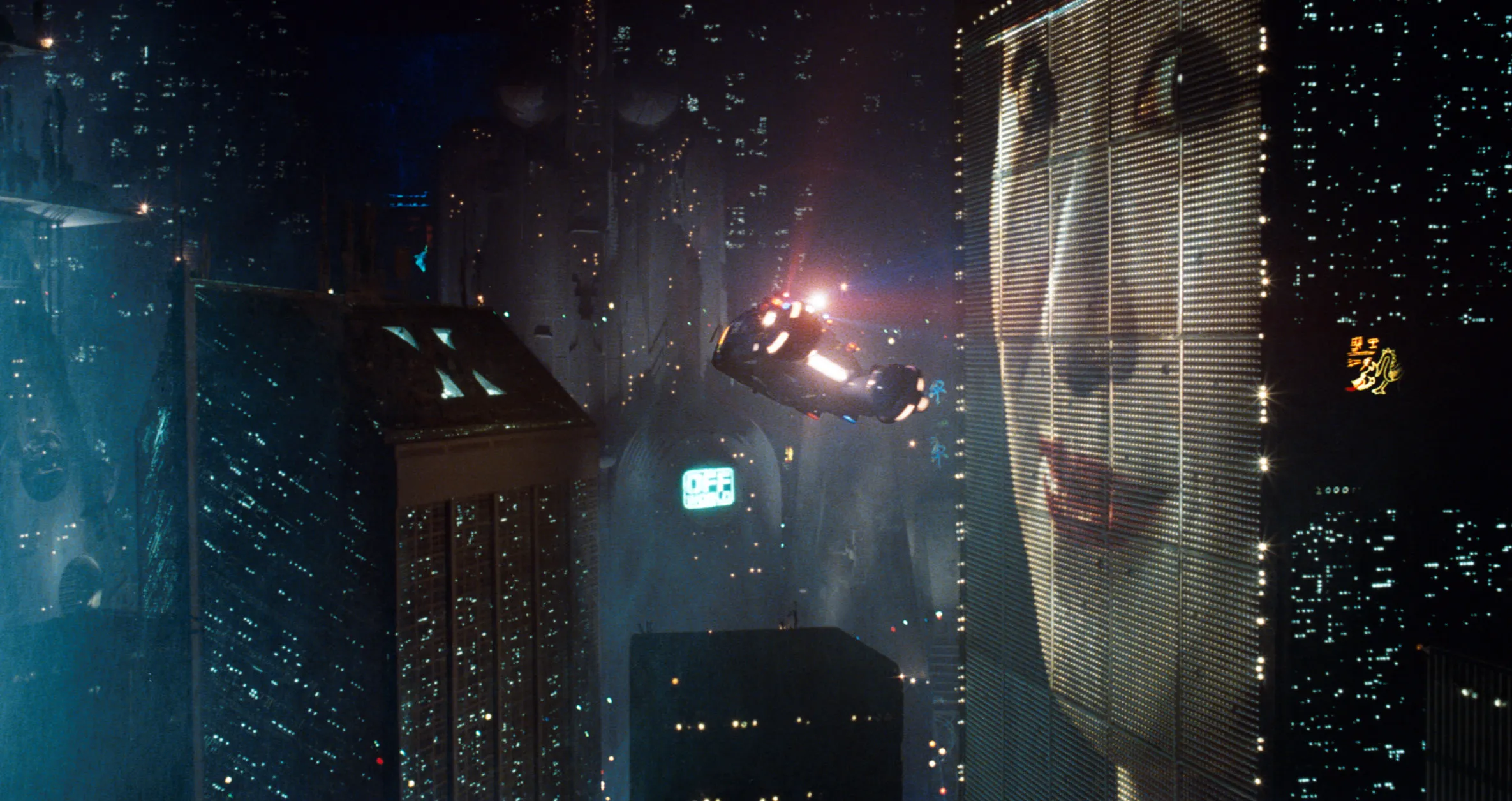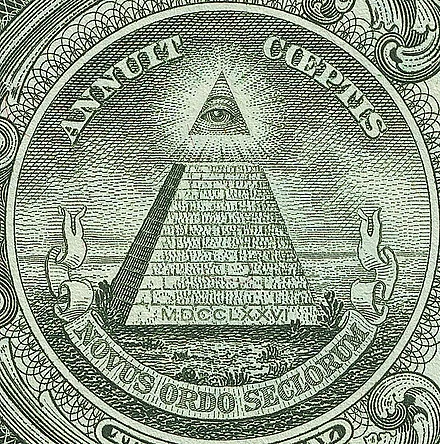How to Survive the Cyberpunk Distopia 101 - Chapter 1: Welcome to your Dystopian Nightmare
“You best start believing in ghost stories, Ms. Turner. You’re in one.”
- Hector Barbossa, Pirates of the Caribbean: The Curse of Black Pearl (2003)
1.1. Log in

I first began engaging with cyberpunk material in 2017, when one night, in one of my great, elucidated ideas, I downloaded a copy of the Director’s Cut of Blade Runner and watched it from one end to the other, multiple times. I loved Harrison Ford and Rutger Hauer’s incredible performances, I loved Vangelis’ accompanying soundtrack, I loved the setting, I loved the aesthetics, I loved the replicants and their depth… by the end, Ridley Scott had me crying and the movie wasn’t even over.
Years later, I feel a sense of disconnect from that experience. Deckard and the replicants’ story was shrewd and dark, a tale about - or lack thereof - humanity. And wasn’t that the concept that was lacking from Blade Runner’s world? Humanity? The soundtrack, however pleasing to the ear, is made of nothing but synthesizers, no human element in sight. The setting is dark and foreboding, the sun is almost never seen, down below it rains and it pours water and muck, and in the rare case a replicant is identified, it rains blood.
Afterward, I kept reading cyberpunk material and the stories kept the dark tone. Gibson’s Neuromancer told of foreboding tales of cyber criminals working, in proxy, for artificial intelligence’s with unknown agendas. Blade Runner’s novelistic origins, Dick’s Do Android’s Dream of Electric Sheep? brought a volume of different insights on the kind of melancholy and sorrow I experienced on the screen.
Ghost in the Shell. Mr. Robot. Minority Report. Akira. Softley’s Hackers, which is universally recognized as the worst hacker movie ever. At the time, it was called out for distorting hacker culture a lot, and later in the future would be recognized for portraying the treatment that hackers are given generally and culture, and would define some of hacker culture moving forward.
All cyberpunk is science-fiction, but all cyberpunk is also prescient and alarmist. It speaks of science-fiction that could, one day, stop being fiction altogether. And that’s what’s so powerful and ominous about it.
Its stories of powerful hackers, maneuvering through cyberspace and breaking into any system, capable of feats that - in these worlds - make them as powerful as gods, speak also of vulnerable people, broken people, a search for identity and a ruthless battle for survival in an unforgiving world, similar to but different from ours, where the line between the rich and powerful and the poor and lowly scum has been clearly drawn.
High tech, low life. That has become the motto of the cyberpunk genre. How come it has also start to become the motto of real life?
1.2. The Eye of Providence
In the turn of the 21st century’s second decade, a slow distortion of current systems and mechanisms began to take form. Some of it already existed long ago, but this distortion planned to normalize itself and burrow itself into the hearts of the people. It would begin by infiltrating American homes, and would soon begin trying to infect all other continents and their populations.
It’s no wonder that one of the United States’ less contested but also less understood symbol is the Eye of Providence.

The “meme” item of every kid in 2013, sitting under the Great Seal of the United States in every one dollar bill, was symbolically setting the principles through which the United States wanted to live, and the status quo that they wanted to perpetuate onto other countries, letting their influence prevail over Europe, Asia and the rest of the world’s status quo ante.
The Eye of Providence is also known as the “All-Seeing Eye”. It is with some skepticism that I claim I do not believe it was placed in with nothing but religious significance. The latin mottos scribed around the symbol represent as much. “Annuit Cœptis” meaning “[He] favours [our] undertakings”. The massive eye favors the American cause, as it peers into the hearts of every american citizen and tries to perceive their intents, their feelings, their next moves.
The other one is far less subtle. “Novus Ordo Seclorum” literally meaning “New Order of the Centuries”. By taking in an all-seeing eye, the United States dreams of a new world order where they maintain complete surveillance: see everything that goes in, see everything that goes out. And for this to work, this system would need to be branched out, and bind the rest of the continents with it.
1.3. Who sees the Eye?
There are some who will contest to this, claiming that the government has nothing to gain from seeing and hearing everything. Others spit out what I tend to call “The Classic”: you shouldn’t worry if there is nothing to hide. But we have things we hide don’t we?
We wouldn’t like being seen changing our underwear, heard telling our non-political, non-important but nevertheless deep and personal secrets. Most people claim they have no regards to their right to privacy because, as they claim, they have nothing to hide. I have three ways of debunking this.
The first one is to claim that you would care about your right to privacy if you no longer had the ability to, I don’t know, close the door when you go to the bathroom. Everyone can now see you take a shit in the toilet and there’s no way for you to have the piece of the cubicle anymore. Everyone can now just stare.
The second is to adopt the ridiculousness of their claim. You don’t care about the right to privacy because you have nothing to hide, you say? You may also say you don’t care about the right to free speech because you have nothing to say. Or maybe you also don’t care about the right to religious freedom because you have nothing to believe in (this one was a hard one for me to write because I’m atheist! I really don’t care about religious freedom because I don’t believe in anything!)
The third is pretty clear. People claim they don’t care, not for any valid reasons. They can’t claim to be unafraid, because they are afraid. They can’t see the Eye. But there are who can, who did and who were punished for ever laying their eyes upon it. In 2013, Edward Snowden, a cryptanalysis and intelligence analyst working for the NSA, requested a medical leave of absence for what he called “necessary treatments for epilepsy”. In the following month, he would give out enterviews to journalists from The Guardian and the South China Morning Post blowing the lid off of current NSA surveillance programs that allowed them to obtain information about people from all over the world. (Source) The program, PRISM, had been implemented as early as 2007 and worked through the global interception of internet traffic by multiple entities like the CIA, the NSA, the United Kingdom’s GCHQ and multiple technological companies like Microsoft, Google, Facebook, Yahoo, Apple, among others. President Barack Obama would later defend the program, stating that “You can’t have 100 percent security and then also have 100 percent privacy (…)”. (Source (this one’s a bit sketchy and needs work))
Snowden’s service for humanity, the pull of the curtain and the reveal to everyone that the Eye not only was there, but saw far much more than anyone believed, is nothing short of incredible, and an act that will surely be remembered in history. His reward? 5 days after his disclosure, the United States crucified Snowden with 3 charges under the Espionage Act. He has now been scurried off to Russia, one of the last countries in the world that has claimed they will not extradite any so called criminals to North America. If he is ever to leave the country without a pardon and be captured, he is most likely to be subject to a trial with no jury. He might be looking at 30 years’ worth of initial charges. The full sentence, based on the biases that the U.S. Government would have and impart on the judge picked for the case, would make it much longer than that (Source).
1.4. The Eye infects the Real World
This is the world we live in. No doubt, the NSA and CIA, in response to Snowden’s disclosure, formulated a brand new surveillance system that works in a completely different way and that the public has no knowledge of; especially now that, only recently, courts in the U.S. have finally ruled that the PRISM program employed by the NSA was illegal and unconstitutional (Source).
But ever since the PRISM disclosure, the international community, governments and corporations alike, has been hard at work to be much more subtle in their affairs. The Eye of Providence is still being implemented, but now in a much more systematic way, in a manner that vises it to impossible to replace. Harvard professor Shoshana Zuboff puts it best. She calls it “Surveillance Capitalism”. As she claims, companies becoming more powerful than ever, and owning full dominion over user data “(…) foreshadowed a global political contest over the fusion of digital capabilities and capitalist ambitions”.

Zuboff has many definitions for “Surveillance Capitalism”. Among them are “a new economic order that claims human experience as free raw material for hidden commercial practices of extraction, prediction, and sales”, “a parasitic economic logic in which the production of goods and services is subordinated to a new global architecture of behavioral modification”, “a significant threat to human nature in the twenty-first century (…)” and “an expropriation of critical human rights that is best understood as (…) an overthrow of the people’s sovereignty”.
In other words, Surveillance Capitalism isn’t a coming of the Cyberpunk dystopia we read in Gibson books, looked at with awe in Ripley Scott movies and reveled in throughout Eidos and CD Projekt RED games. Surveillance Capitalism IS the Cyberpunk dystopia. It is a means through which companies and governments work together to make the human brain a money printing machine, throwing it into decadence and moving on to the next.
The principle is not that “if you’re not paying for a product, you are the product”. That’s not the point of this new age of the Internet we’re in. We’re merely inputs for the product: the algorithm. Algorithms have been mystified and nobody knows how they work, but for these kinds of systems, I’ll tell you exactly how they work: they take your current behavior as an input and spit out a mechanism through which your behavior can be tweaked to generate more profit for whoever has their hands on the lever.
“As things currently stand, it is the surveillance capitalist corporations that know. It is the market form that decides. It is the competitive struggle among surveillance capitalists that decides who decides.”
Cyberpunk explores these concepts deeply. Surveillance. Identity. Free will. Survival.
In the next chapters, I will follow words of many thinkers of these areas that see these things for what they are. Has this is just “How to Survive the Cyberpunk Dystopia”, currently the objective is to survive: to be yourself in a world that wants you to be a money-printing carcass for corporations around the world. Now you know what fights against you and you must build yourself up against it.
For this specific chain of thought on survival, I will lean on the words of Shoshana Zuboff’s The Age of Surveillance Capitalism and Yuval Noah Harari’s Homo Deus. I hope I am not insensible nor ignorant in my approach to these issues, and hope you come along with me as I log off.